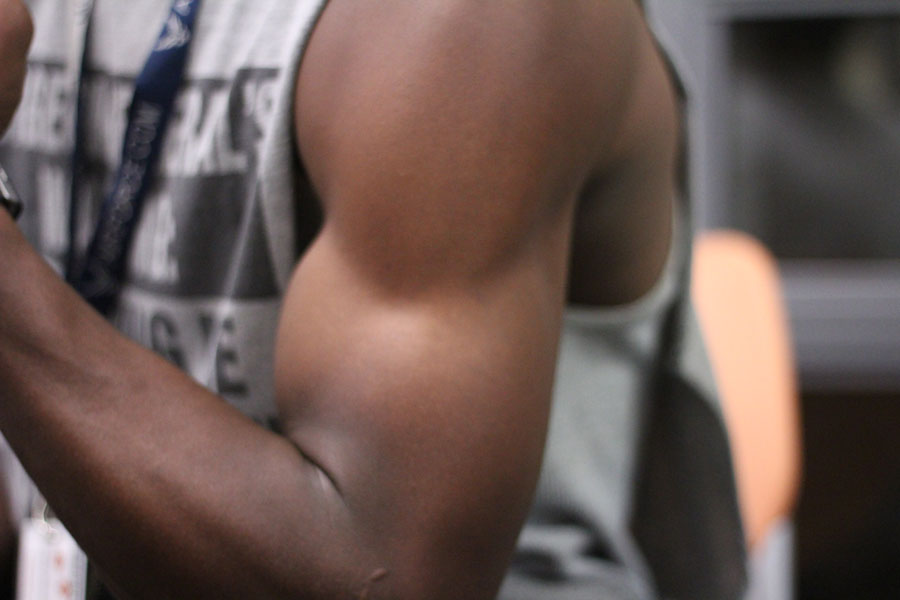Eliminating the Edge
Coaches and students speak out about steroid use
The quest for the perfect bicep has led professional athletes to try steroids. This can lead to high school students thinking that steroids are an acceptable form of workout
September 18, 2013
Recent reports of steroid use in Major League Baseball (MLB), the National Football League (NFL), and the Olympics have shined light on the dangers of professional athletes and their influence on teenage aspiring athletes.
Professional athletes at times are held on a pedestal. When they succeed in their, craft their audience praises them, but when they fail they are criticized as if they are not allowed to make an error.
In today’s society, athletes live public lives. Every little thing they do is plastered on television and radio news broadcasts, including actions which take place outside of the field of play.
A lot of today’s youth look at professional athletes as positive role models. It is hard not to when they continue to shock their fans week after week with game winning catches, buzzer beating shots, walk-off homeruns and still continue to look humble.
Varsity Football Coach Hoyt Gregory believes that athletes should not be held at such a high level when it comes to being role models.
“Role models can be found everyday in life,” Gregory said.
Varsity Wrestler, senior Tyron Welch also had strong opinions of how he views the potential use of steroids amongst his peers in high school athletics.
“You are cheating, if you use steroids. You are not only letting your teammates down, but more importantly you’re letting yourself down,” Welch said.
The use of steroids gives athletes that extra competitive edge, allowing them to succeed where others might fail.
“In high school we should all be around the same level, I would be disappointed if I found out one of my opponents was using performance enhancing drugs,” Welch said.
Others, like Varsity Wrestling Coach Conye Ausar, believe that athletes should be the ones to blame.
“They chose this career path with an understanding that the youth are likely going to look up to them,” Ausar said.
This year, Ryan Braun of the Milwaukee Brewers was suspended for almost half of the season for violating the drug policy, but he will be allowed to return next season and has a contract through the 2020 season to play baseball.
Before the actual suspension, he was accused of taking steroids, but claimed that his sample was contaminated and won his appeal. His actions could have a negative impact on young fans.
Gregory believes that aspiring athletes should not be looking to professional athletes for role models.
“I do not believe professional athletes are role models because they do not live an everyday life. Parents and teachers should be young athletes’ role models, that is the reality. More people get struck by lightning per year than the amount of people that make it into the NBA from the draft,” Gregory said.
Ausar echoed Gregory’s ideas about who should be playing a major role in young people’s lives.
“Parents should step up and take more of a leadership role with today’s generation; I would not want my child to not think of me as a positive role model,” Ausar said.
While a competitive advantage might seem worth the risk to some athletes, Welch does not believe that using steroids would be sporting.
“The fact of the matter is; sports should be clean. Nobody should have that unfair advantage over their competitors unless you were born with it,” Welch said.



